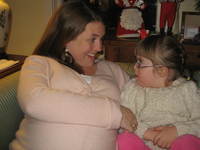I often feel paralyzed when I think about the problems in the world around us. Poverty, injustice, crime, substance abuse, disease. And whenever I set out to think about solving those problems, I seem to uncover another layer of dysfunction. Peel back the onion of educational inequity, for instance, and discover a broken family. Dig into the details of that broken family and discover an economic system that makes it nearly impossible to rise out of poverty. So where do you start–become a teacher? a social worker? a politician?
I get paralyzed, but then I remember that it is only my pride that makes me think social change is dependent upon me and my efforts. The big picture of redeeming this world is God’s responsibility. I just get to play my small part, and I need to trust that God will employ others to do theirs, and together, change will come.
I read an article last week about Allen Tibbels, a man who played his small part. Tibbels died this past year. He was a Christian, and a quadriplegic, a father, a husband, and a man who decided to follow Jesus into an urban center of Baltimore and try to serve the community. His devotion made a difference, and it was written up this past week in the New York Times Magazine: “Wheelchair Missionary.”
From the article, it seems that the remarkable part of the story lies not in Tibbels’ abilities, but in his willingness to serve. He did the thing that most of us would never even consider. He moved his family into a “bad” neighborhood, and he stayed for years. Hundreds of lives improved as a result of his faithful presence. I’m grateful that the NY Times saw fit to eulogize him. And yet I also hope that more and more of us will play our small part in making change in the world. That Allen Tibbles would not be an exceptional case, but rather become just one example of what Christian love looks like.

